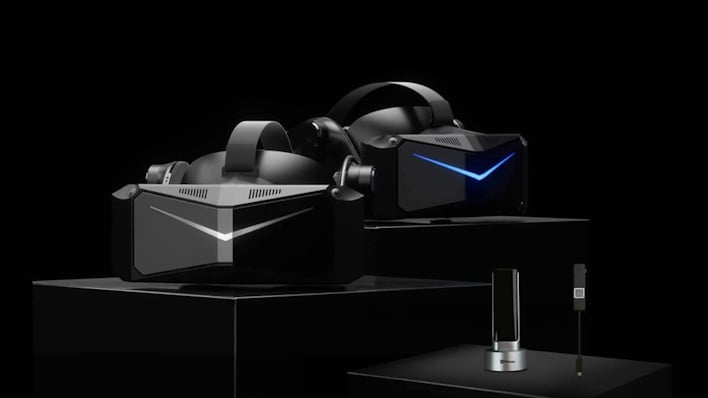
At the end of 2023, we looked at Pimax’s latest VR headset offering, known as the Pimax Crystal, which debuted at $1,499 after a $300 coupon. In that review, we found that it was a technically solid device that needed some polish to clean up some minor problems with its hardware and software implementation. This week, Pimax hosted its Frontier 2024 event, announcing two new Pimax Crystal editions that might bring these much-needed updates.
Introduced on YouTube, the Crystal Light headset is a distinct offering from Pimax. It’s a ‘streamlined iteration’ of the Pimax Crystal, designed specifically for PC-based virtual reality experiences. Notably, it omits features like eye-tracking, the XR2, 256GB, standalone VR mode, batteries, and automatic IPD adjustments. These exclusions have significantly reduced the headset’s weight by 30% and its price to $699, making it a compelling choice in the current VR market. This is available for pre-order now and will ship in May.
The other headset that was announced is the Pimax Crystal Super, “an ultra-high-end headset” with quite the bump in specs and features over the original Pimax Crystal. The Super edition goes from a 2880px2 per eye up to 3840px2 per eye on a QLED screen, which brings its PPD (Pixels Per Display) up to 50 – 57 PPD with an overall wider FOV (Field Of View). However, you can also switch out the screens in the headset to bring it to 4K per eye with micro-OLED displays, though this also brings down refresh rates to 90Hz from 120Hz with the QLED screen. With these differences, the Super QLED model runs $1,799 while the Super Micro-OLED runs $1,999. If you don’t want to choose, you can get the bundle with both screens for $2,399. These options are reservable now and will ship sometime in Q4 of 2024.
Beyond the headset announcements, Pimax also unveiled the 60G Airlink module which enables high-fidelity wireless VR on the Pimax Crystal and Crystal Super using WiGig technology. This module is an add-on that runs $299 on top of the other headsets but is well worth it to improve the VR experience. Perhaps we will be able to get some of this kit in-house to test out, so keep an eye on HotHardware for that and the latest VR advancements.
